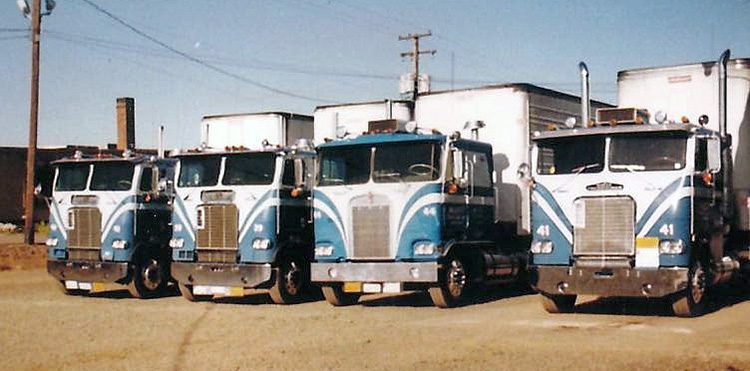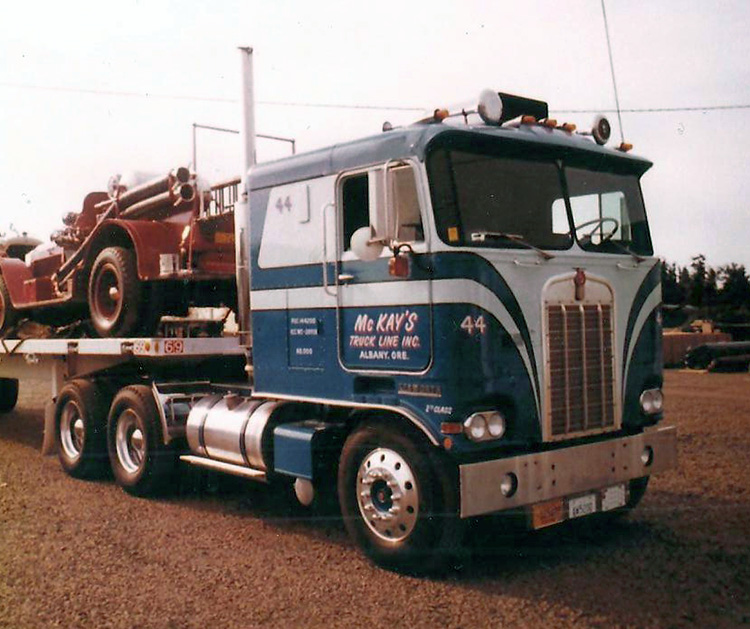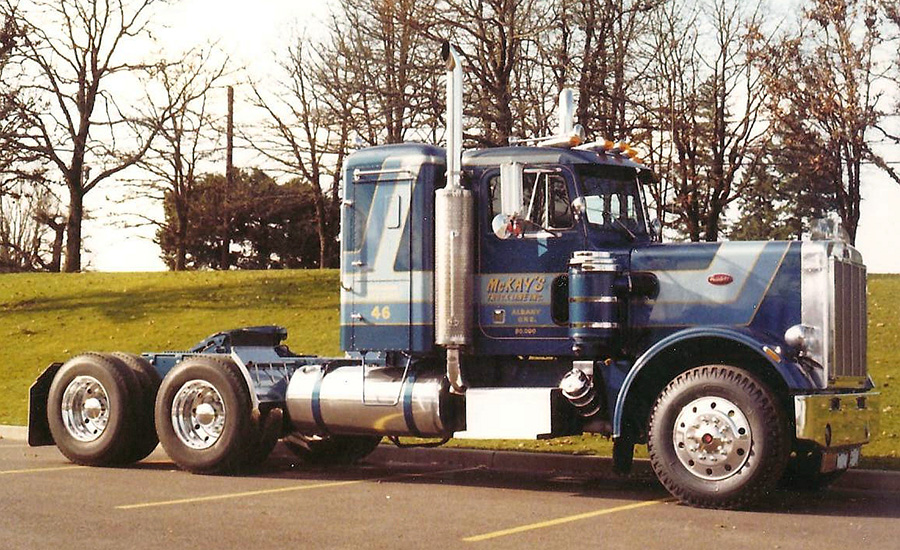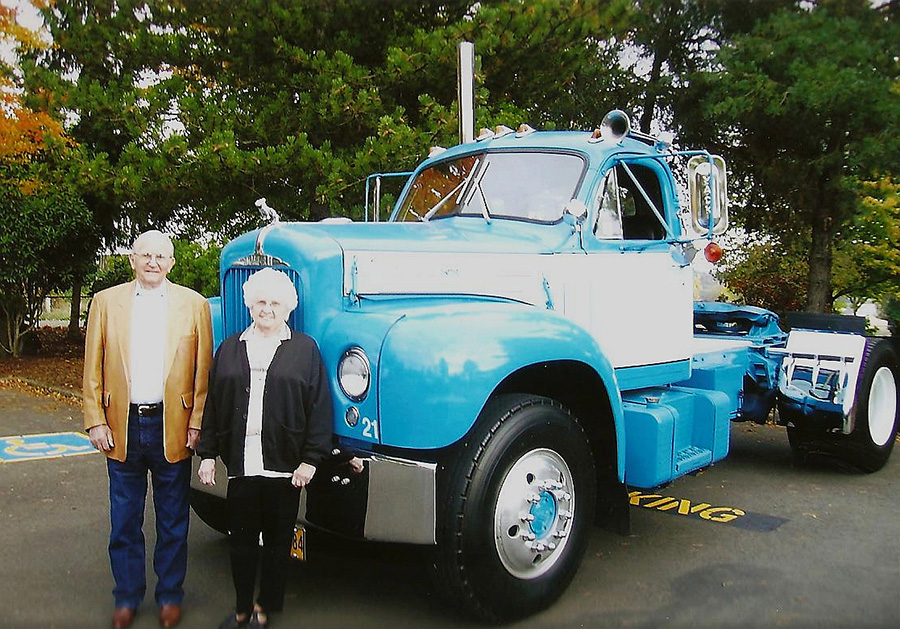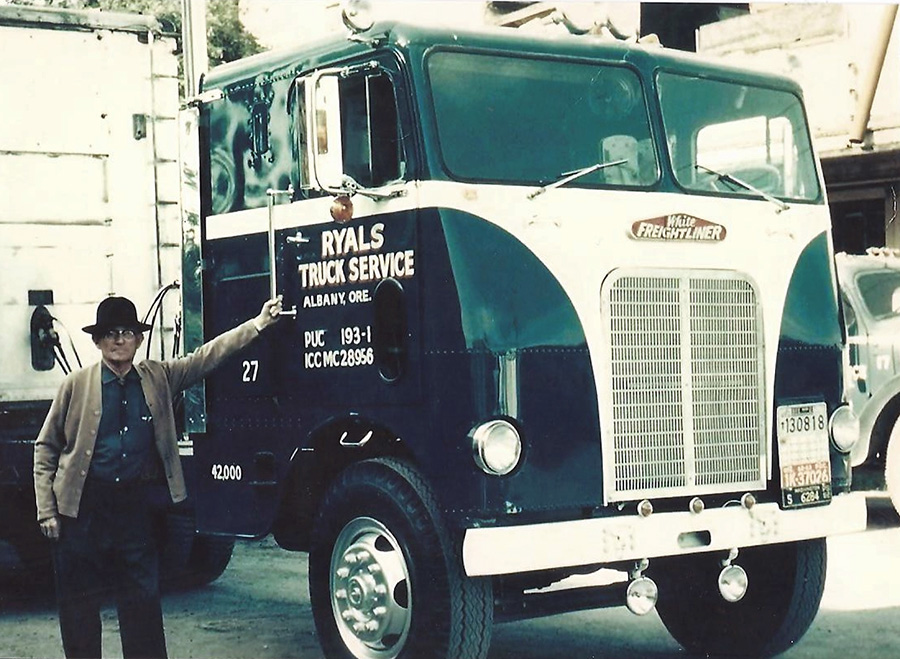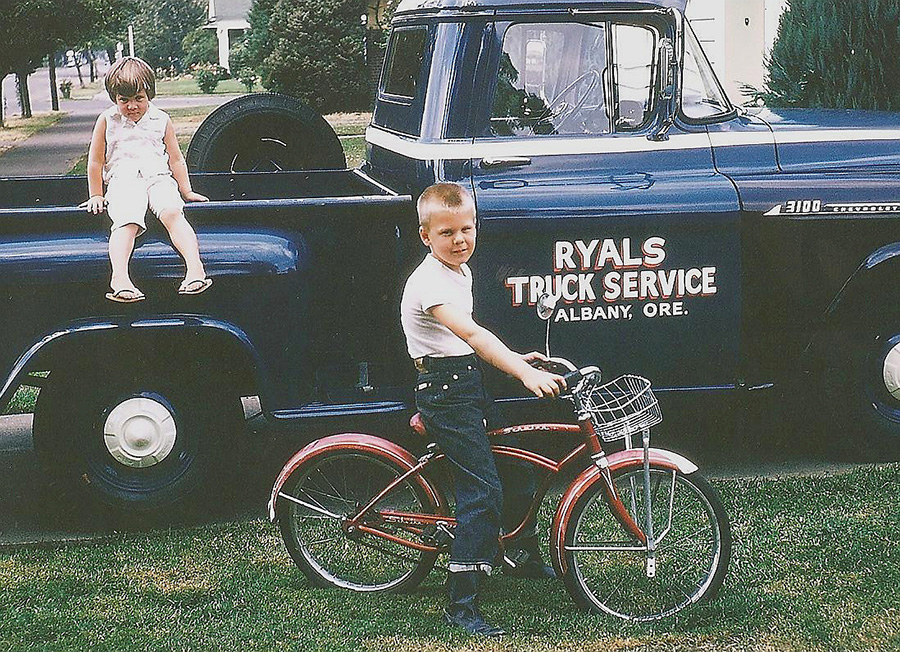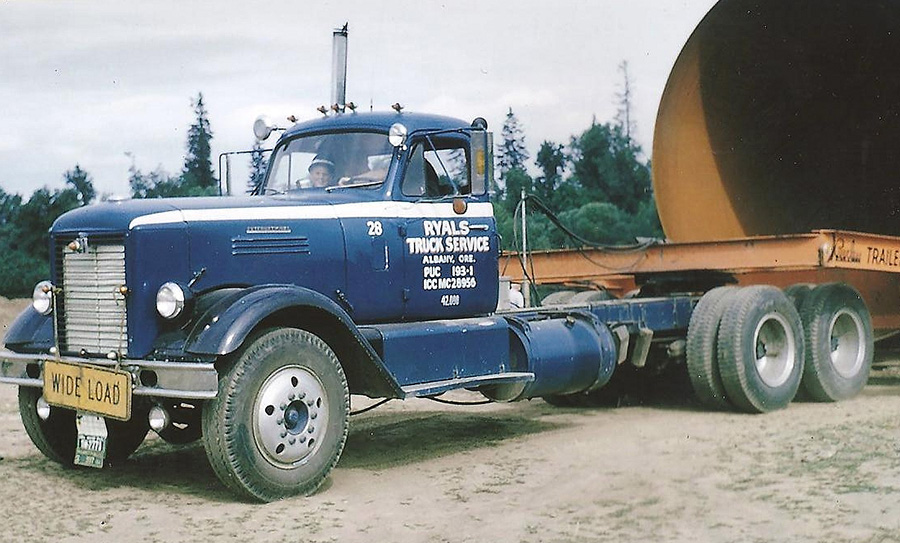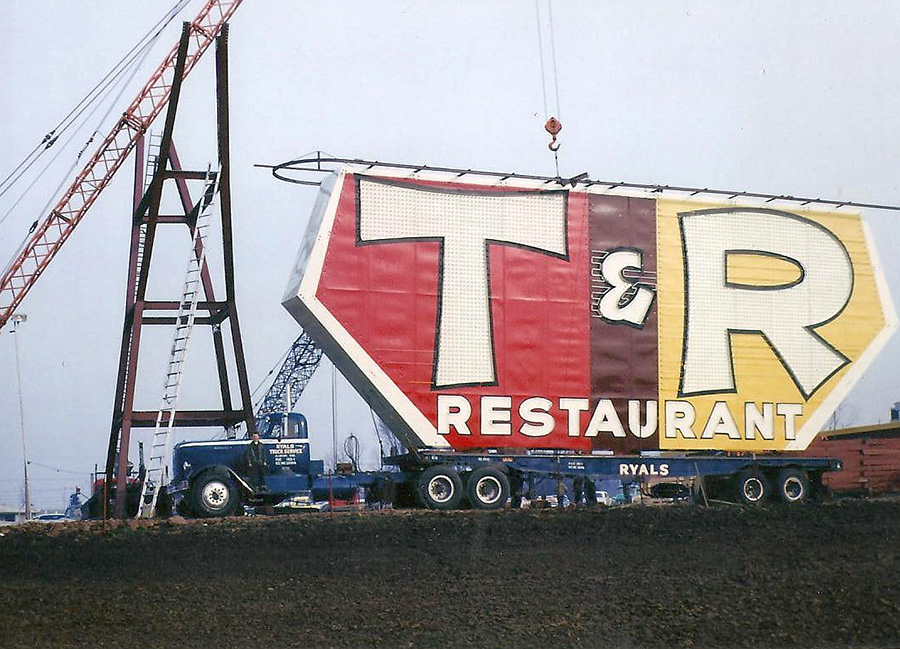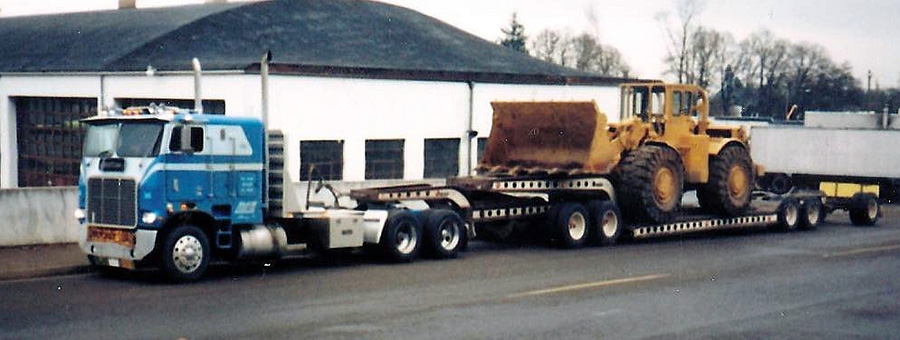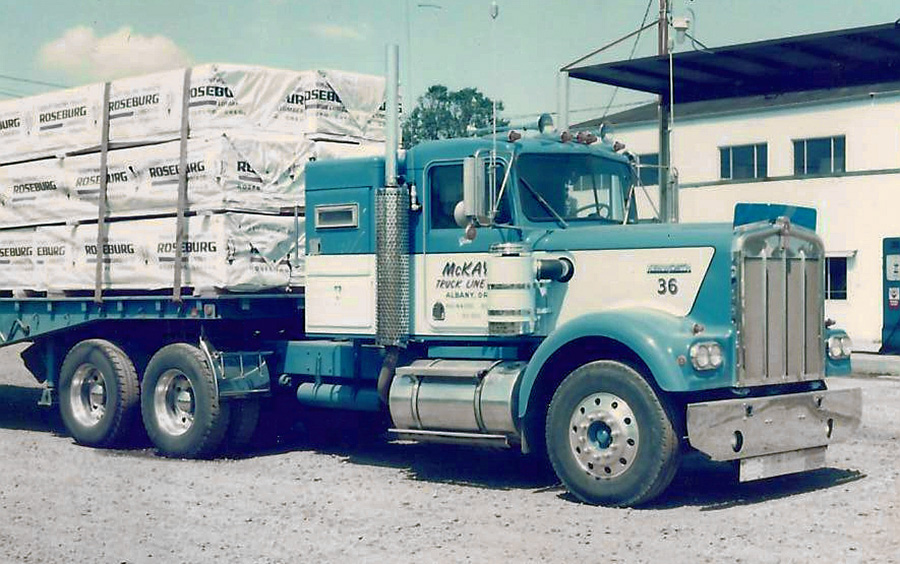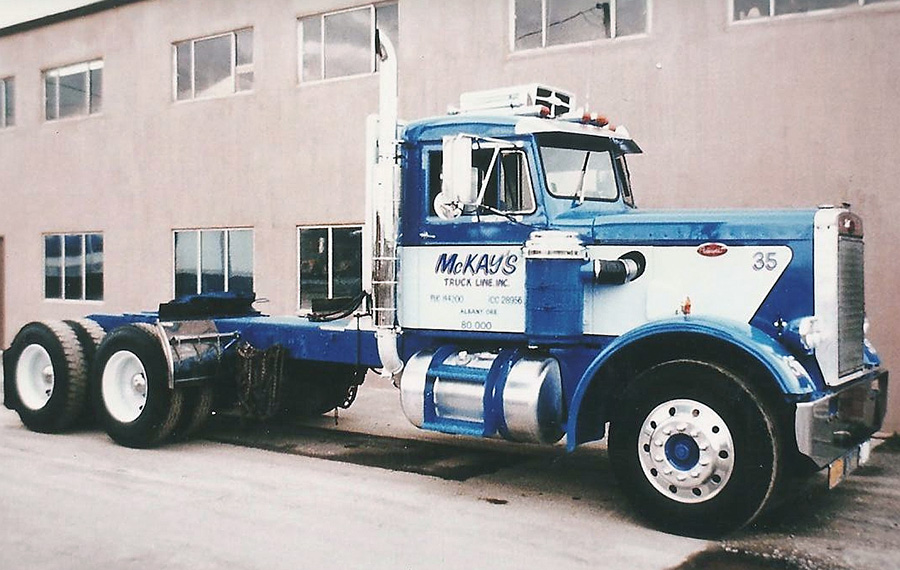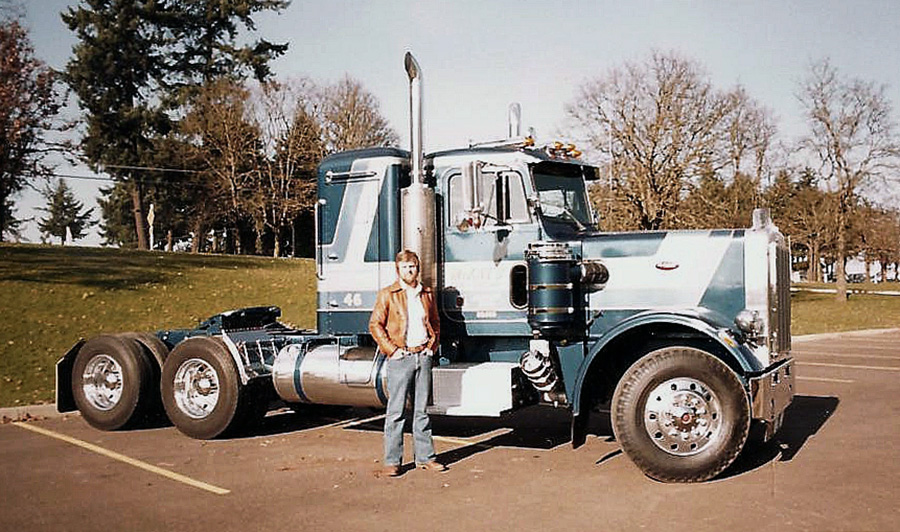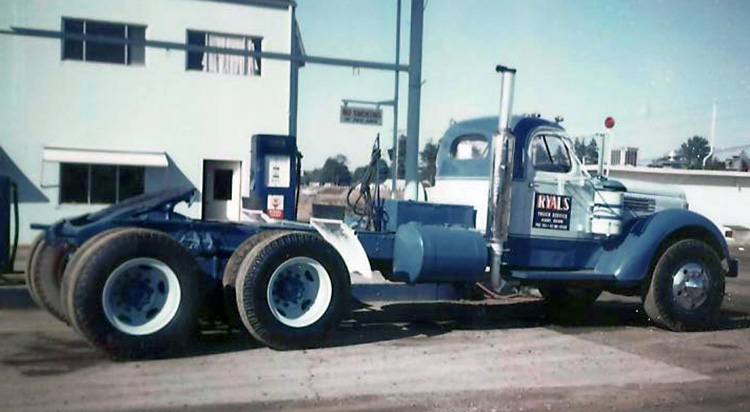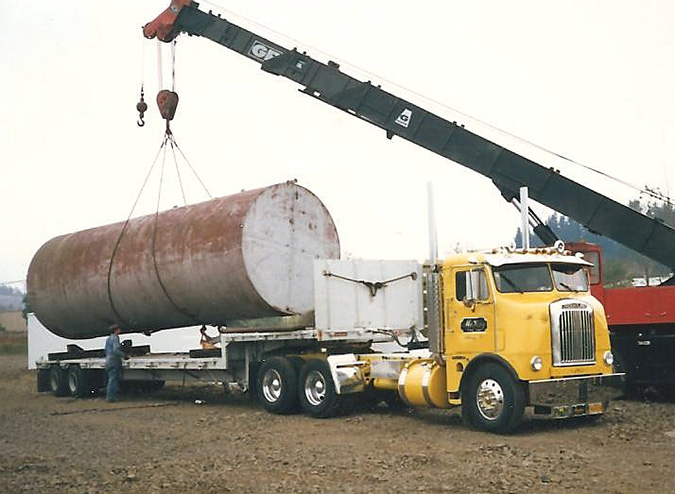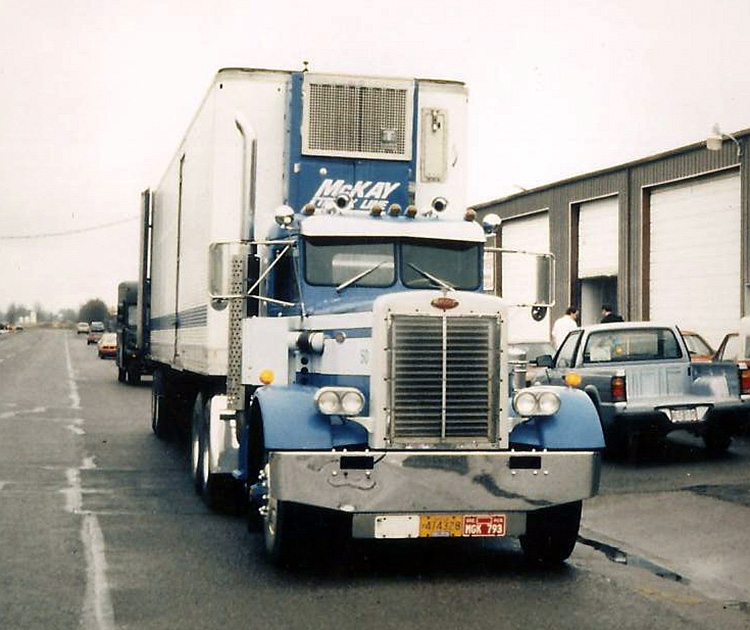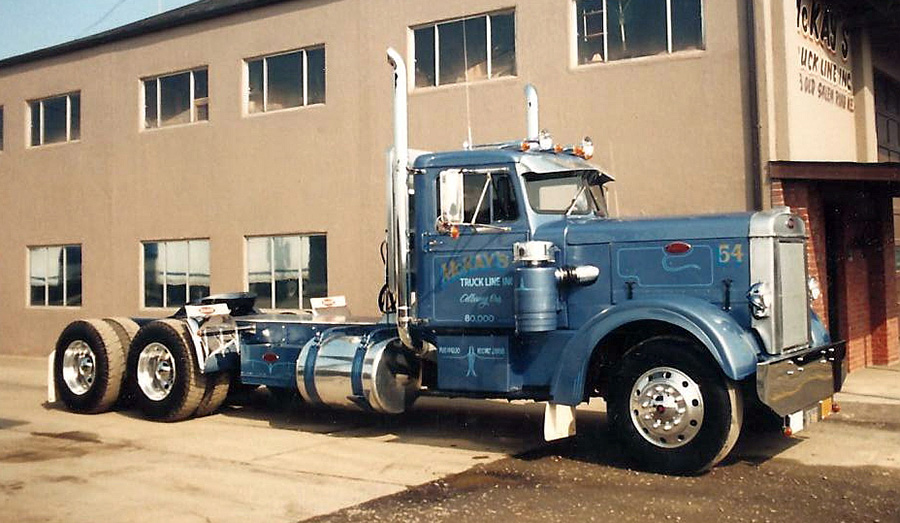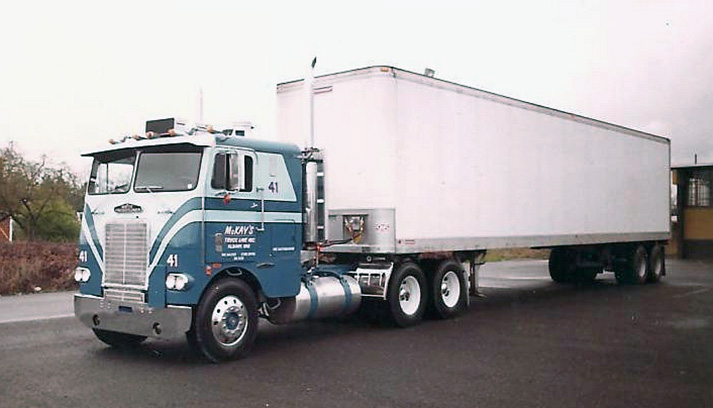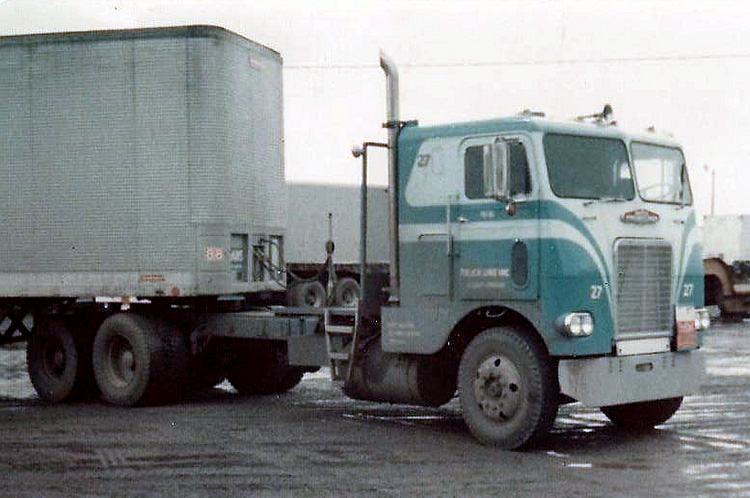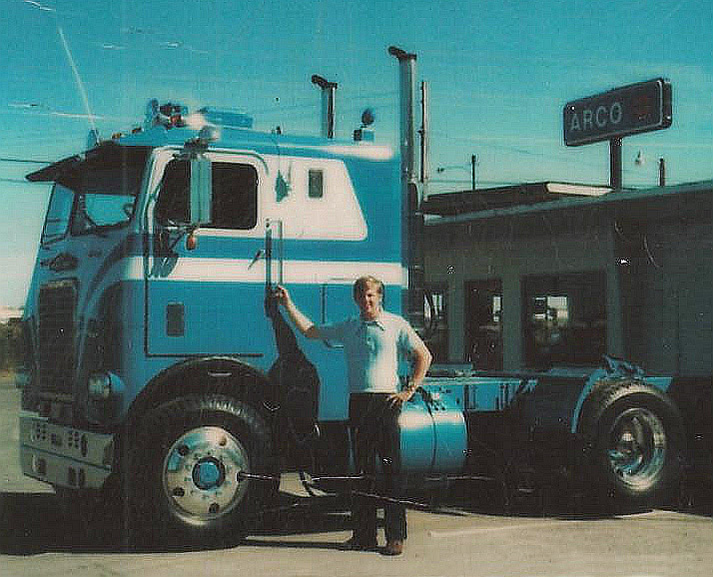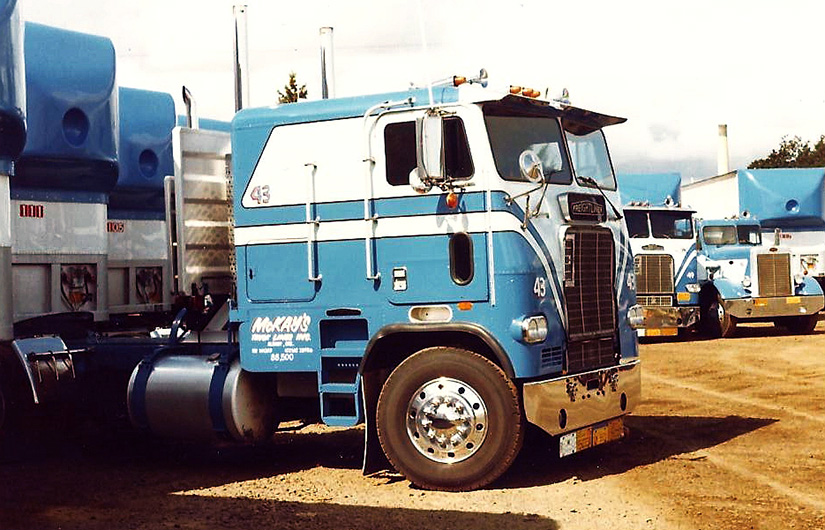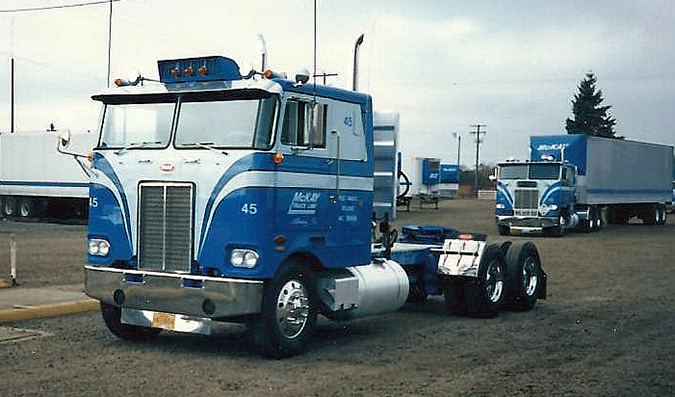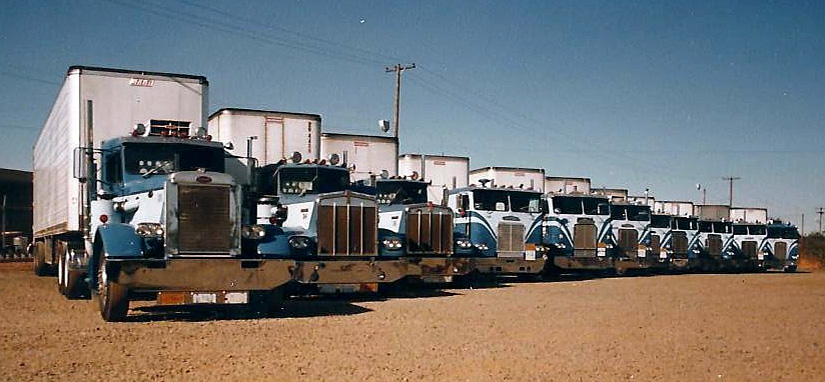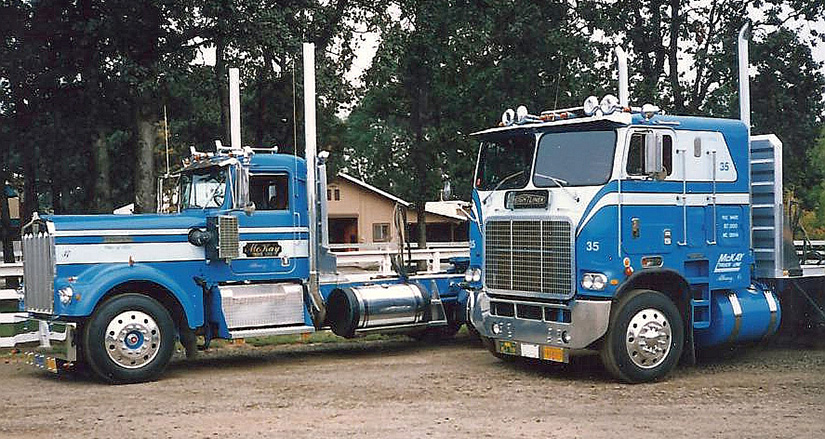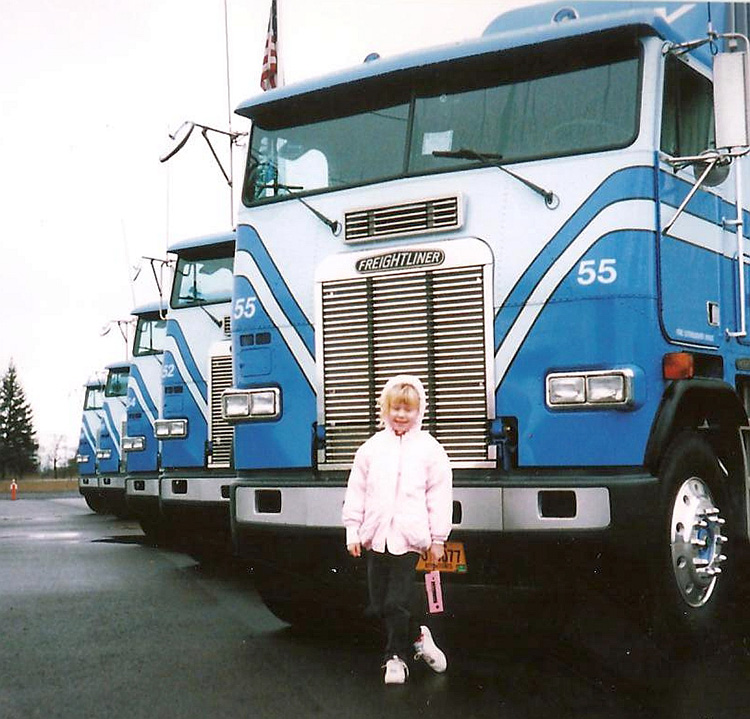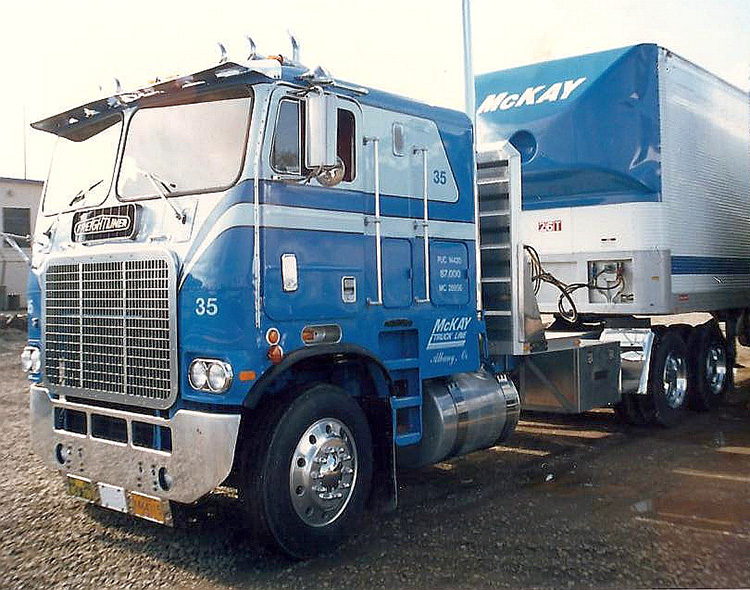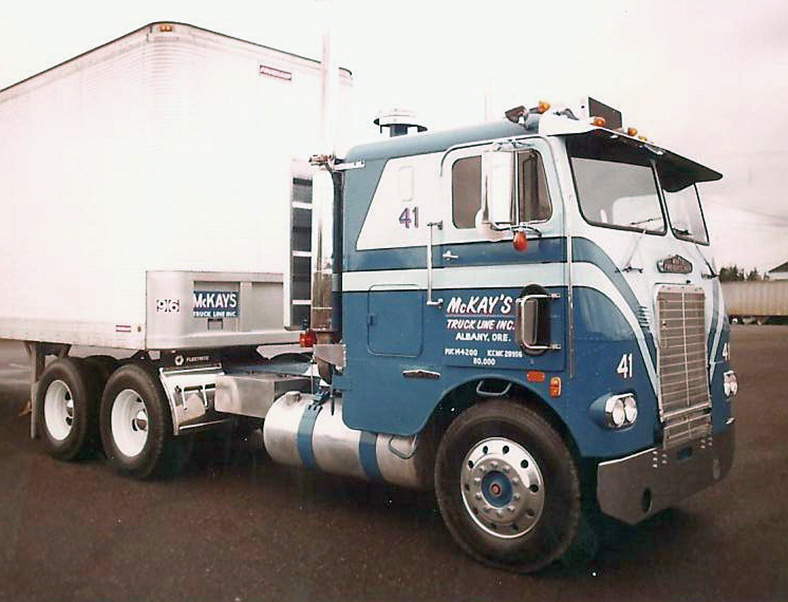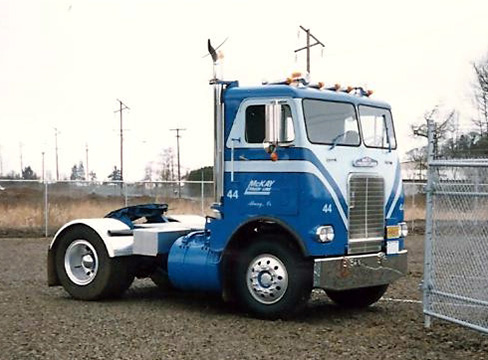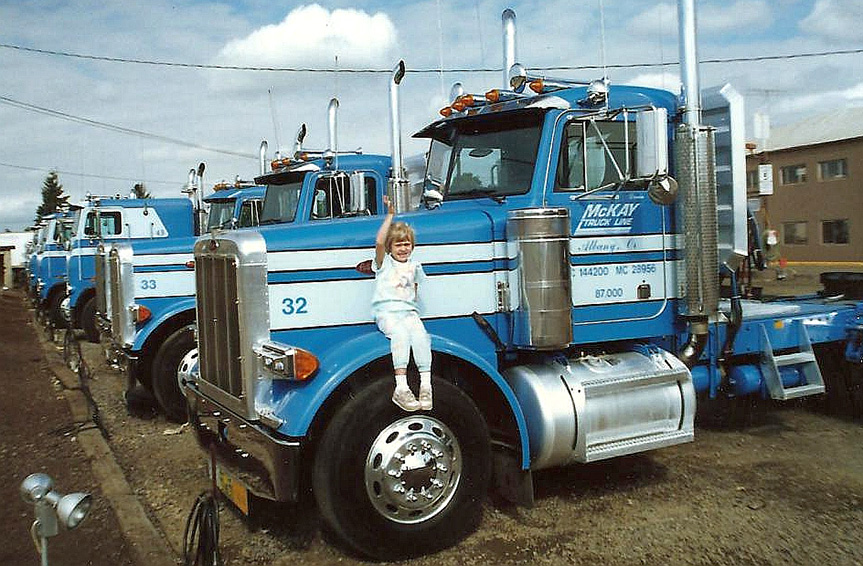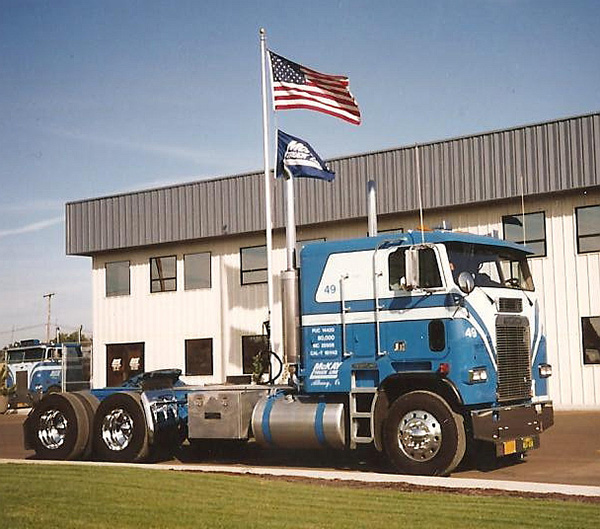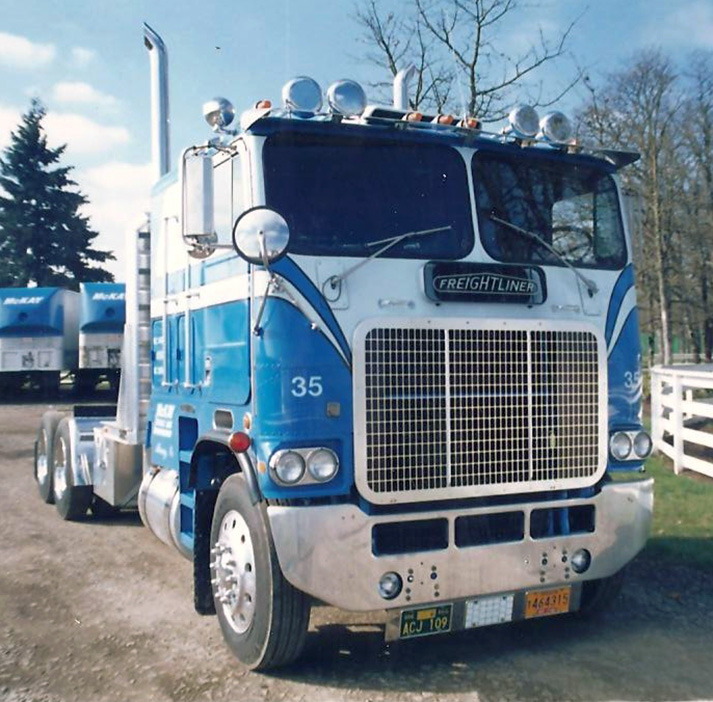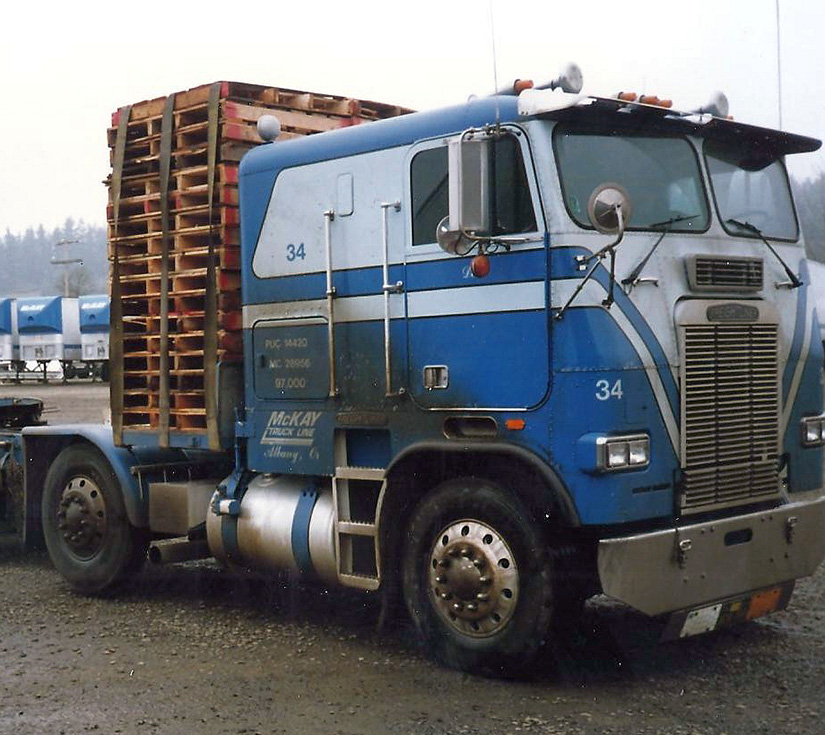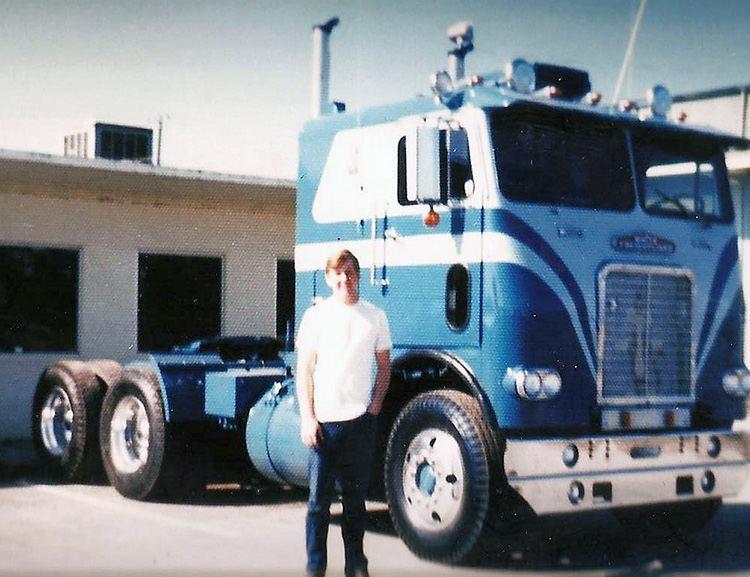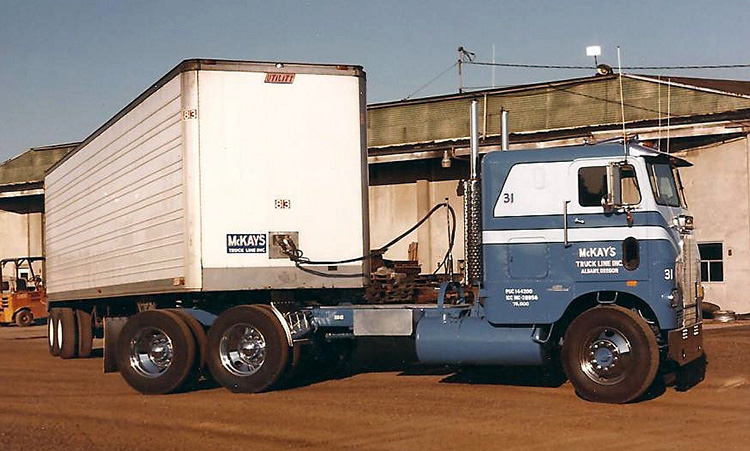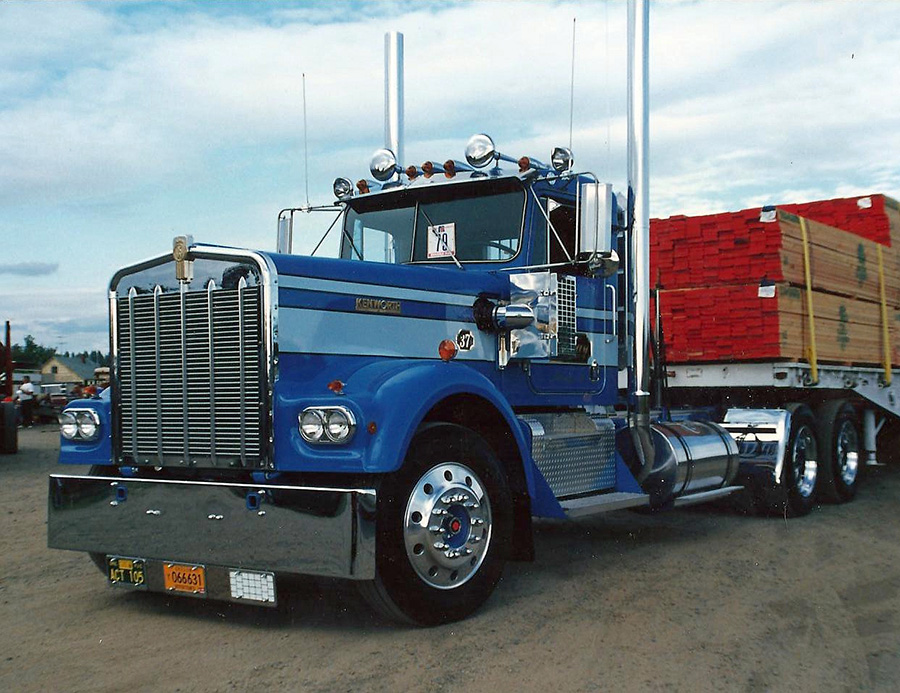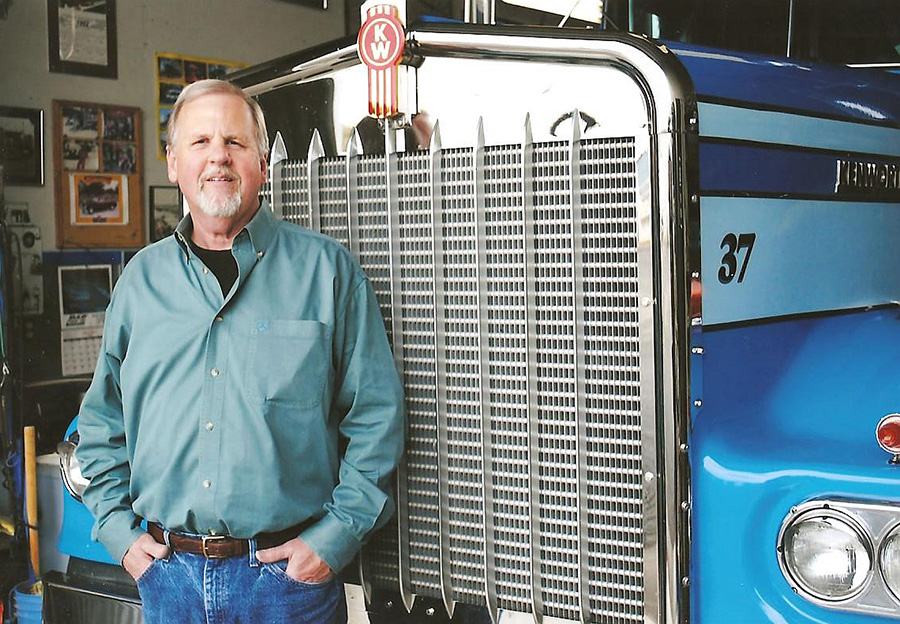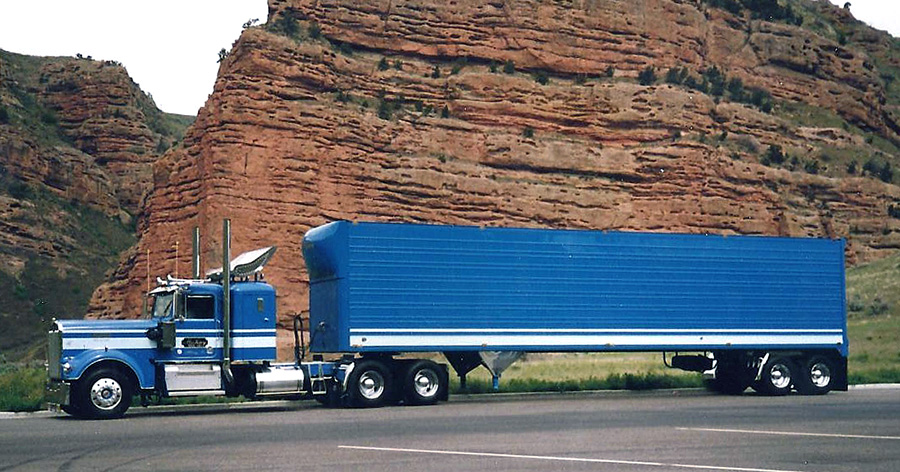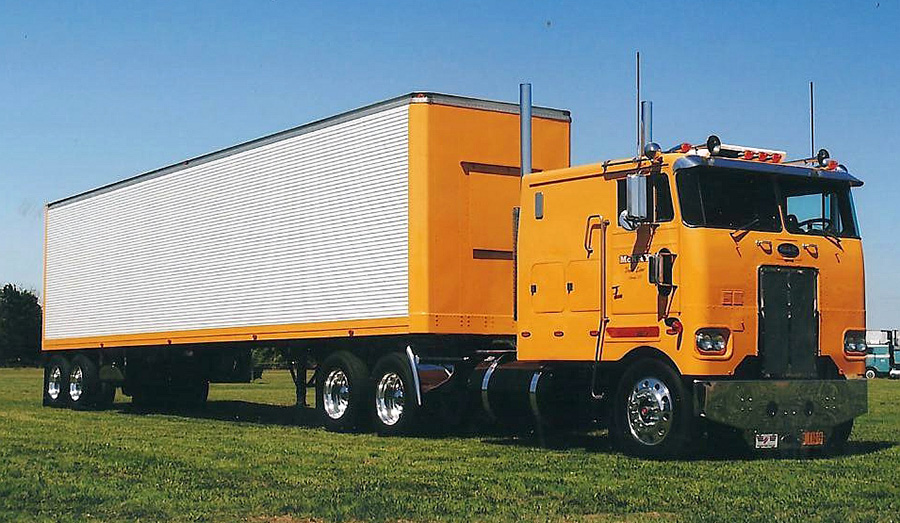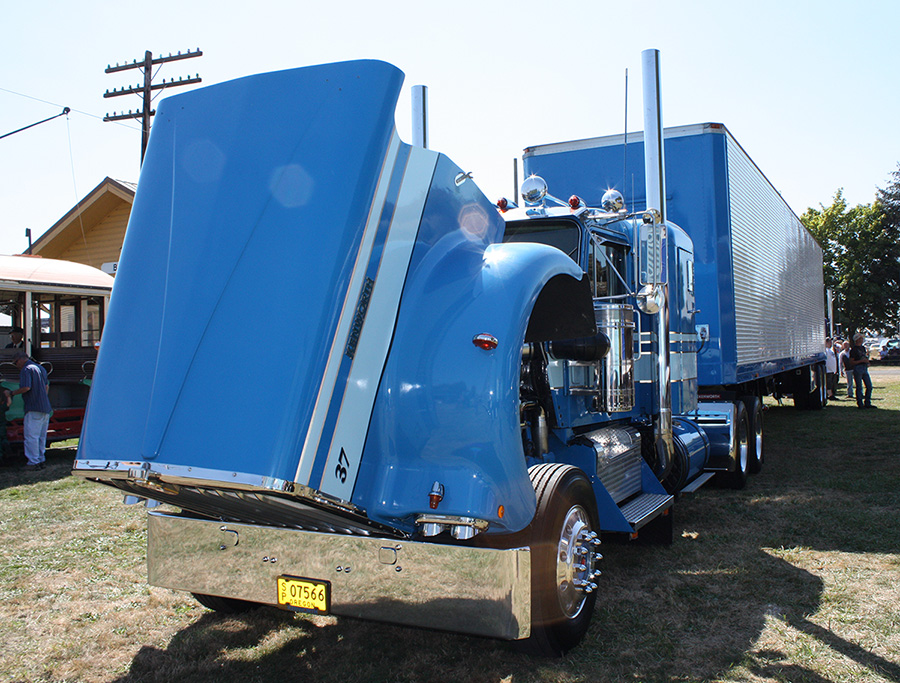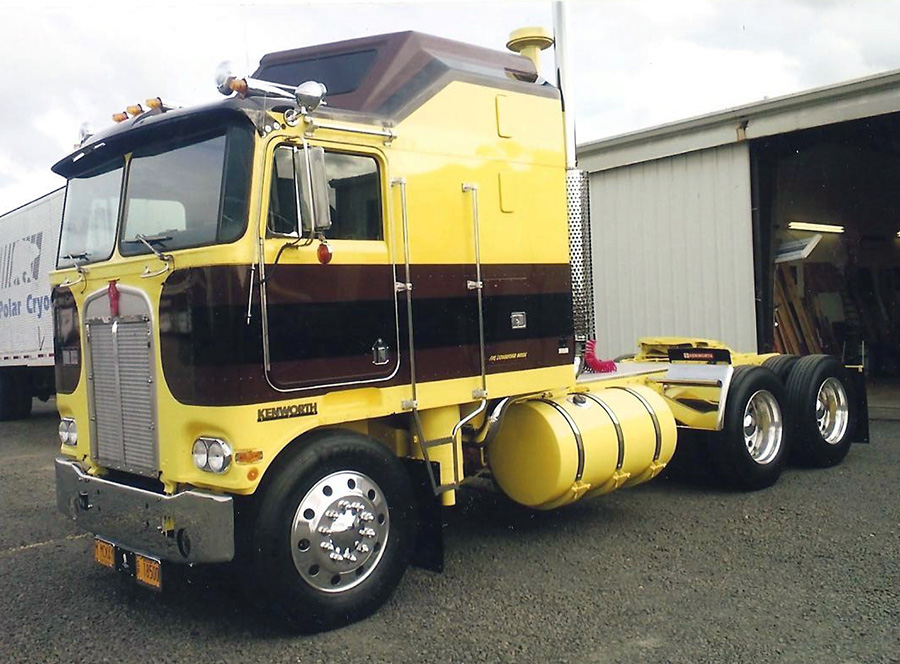This month’s “Fog Line Rewind” features a humble man with a well-known last name. McKay Truck Line, Inc. was a very unique fleet for many decades – and for many reasons (those two-tone blue rigs could be seen from a mile away)! Years ago, somebody told me that they even ordered the lightest Freightliner ever produced. Like in most cases, it takes passion and a lot of drive to build a reputation like that of McKay Truck Line, and for Mike McKay, it goes back three generations. From his grandfather to his dad, and then to Mike, the trucking gene was passed, and needless to say, Mike continues to make his mentors proud each and every day.
McKay Truck Line actually stemmed from an old well-known trucking company established in 1927, called Ryals Truck service. The Ryals Company was owned by G.P. Ryals, Mike McKay’s grandfather. The company was a pickup and delivery service between Portland and Albany, Oregon, and was one of the first companies in Oregon that received statewide operating authority. In 1950, Mike’s dad Bob McKay came into the business and, later, became the manager and part owner of the truck line. By 1960, the company was moving general commodities throughout Oregon and Washington and had begun specializing in bulk commodities. Bob McKay had a real enthusiasm for trucks and trucking, and took those old Ryals trucks and started to soup them all up.
In 1968, Mike McKay started working for the company doing things like washing tucks, fueling, transferring loads and helping in the shop. Honestly, Mike didn’t care what he was doing – as long as he was around his dad and those trucks, he was happy. You couldn’t keep him away from the trucks if you tried! In 1974, their tank division was sold to the K-Line Company in Portland, Oregon and Bob, Mike and his sister Carrie became owners of McKay Truck Line. The McKay Company held the same corporation and operating authority, which allowed the fleet to grow and start moving machinery, wood products, rare metals, paper products and more. In 1985, Bob stepped back and Mike and his sister Carrie began running the trucking business as a team – Mike ran the trucks and the shop, while Carrie handled everything in the office – it worked well. As the company continued to grow, they started specializing in hauling paper and paper products, machinery and radioactive waste in seven western states.
McKay moved into a larger facility in Millersburg, Oregon in 1989, allowing them more room to grow and build up the truck repair side of the business. Back then, their fleet was made up of mostly Freightliners, with a few Peterbilts and Kenworths in the mix, and, of course, Bob’s old 1957 B-61 Mack he bought new. This Mack was Bob’s original and favorite truck – it was also the truck Mike learned to drive in. Power came from Cummins and a few Detroits, and their trailers were all Fruehauf inside frame flats and heavy load 45 and 48 foot high cube vans. In 1993, McKay expanded the shop to 13 bays and added RV repair to their business.
In 1997, the McKay’s sold the trucking side of the business to Gordon Richardson, LLC. A few years later, the new owners changed the name to Cascade Express. Mike and Carrie continued to grow the truck and RV repair business in the same location under the name McKay Truck and RV Center, and then later added RV and boat storage to the operation. In 2010, the McKay’s decided to step down from the day to day operations and sold McKay Truck and RV Center to Potter Webster Co., who continues to operate the business today. Mike, Mike’s wife Paula, and Carrie continue to manage the boat and RV storage facility, and do some business consulting from time to time.
Around 1984, Mike began restoring older trucks. There were several rigs in the fleet that were considered special to the company, including a 1954 Peterbilt, a 1979 Freightliner Powerliner, a 1951 Bubble Nose Freightliner, a 1953 LJ Mack, and Mike’s pride and joy, a 1973 Kenworth W923 long hood powered by a V-12 Jimmy, hooked to a beautiful 1981 Comet 45 foot trailer painted to match. And folks, do not be fooled by this old Comet – this trailer is not only equipped with full living quarters, but it also has a miniature truck museum inside it, too. Of course, he also still has his dad’s old 1957 B-61 Mack, as well. Mike’s most-recent rig restoration is his beautiful yellow and brown 1980 K-100-C Kenworth COE Aerodyne, and boy is she pretty. Mike McKay is still very active in collecting and restoring antique trucks and trailers. Mike attends many ATHS truck shows in the west with these trucks, and is also involved with the Pacific Northwest Truck Museum in Brooks, Oregon.
Mike has many fond memories from the road. Being one of those kids that grew up around trucks and truck drivers, all Mike ever wanted to be was a truck driver. In the 1960’s, he remembers watching his dad move the big T&R Truck Stop sign, and rode many miles in his old “Coaster” (an International West Coaster conventional) when they were moving the 18-foot high and wide penstocks for the Green Peter Dam. He also remembers polishing the first aluminum wheels and learning how to push a broom the correct way. Throughout that decade, he rode thousands of miles in the right seat of a truck, sometimes jumping from one truck to another, going the other way with different drivers.
Mike spent the most right seat miles in his dad’s B-61 Mack, running to Portland and back in the evening after school. After already working a full day dispatching trucks and running the shop, Mike’s dad would come home, have a quick dinner, and then the two of them, father and son, would take off to Portland for a load of bulk cement. Bringing the load back to Albany, they would park the truck in the yard, leaving it ready for the next driver in the morning. That is how you got ahead back in those days. On those trips, Mike did most of the gear changes from the right seat. The old truck has a Mack 205 engine with a five-and-three (Triplex) transmission. This neat old Mack was the truck Mike made his first (legal) trip to Portland with – which was a load of plywood north and two forklifts coming back down south. That was a big day for Mike McKay!
During the 1970s, Mike worked in the truck shop, loaded trailers, and did some driving – whatever it took to keep things going. Most of his driving involved moving something somewhere that was difficult – it was Mike’s job to figure everything out and try not to make a mess of it. Mike’s dad Bob got very good at telling customers, “Hell ya, we can do that load – Mike will figure out a way!” Most were oversize, over weight and had other issues to make the trip challenging or interesting. One time he got stuck under an overpass in Eugene, Oregon while hauling a railroad caboose, and another time he hit some wires with an 18-foot tall tank in Tigard, Oregon and pulled power poles over for half a mile, causing Highway 99 to be closed for the better part of a day! You learn fast moving that kind of freight, but it was fun, and Mike would go do it all again the very next day without a moment’s thought.
Spending most of his time dispatching and managing the trucks through the 1980s and 1990s, Mike always found time to fit in a few trips in the truck here and there. Looking back over the years, Mike admits that he was lucky to have good employees to help him be successful, saying, “You can’t put a price on that. You guys know who you are, and I thank you for your hard work and dedication to our company for all those decades.”
McKay Truck Line may just be a fading memory to some, but for those in the Pacific Northwest who grew up seeing their awesome rigs cruising up and down I-5 day and night, they will never forget what a huge impact this outfit had on the entire Oregon trucking scene. I know I won’t forget! In the meantime, we can all enjoy Mike’s remaining rigs at the antique truck shows, and drift back to an era where trucks were trucks, and truckers carried their own tools! I sure miss those days, and I bet Mike does, too. Thanks to Mike McKay and his entire family for opening up their shoebox and sharing a few of their trucking memories, cool trucks and past experiences. It is important for us to never forget where we all came from, and to honor those who paved the way before us.

